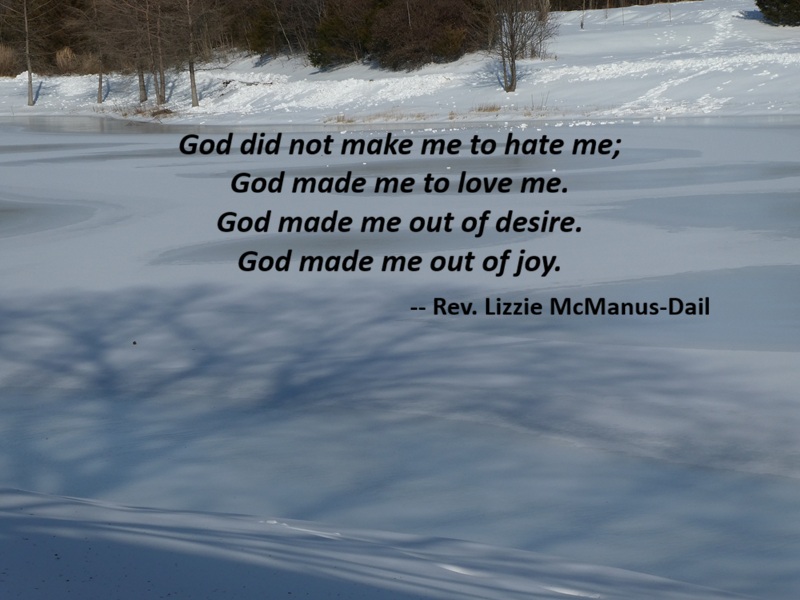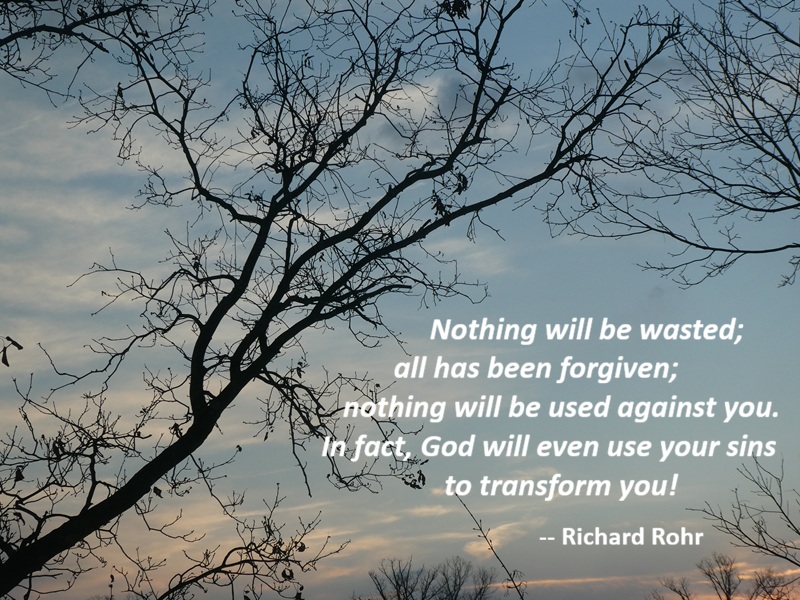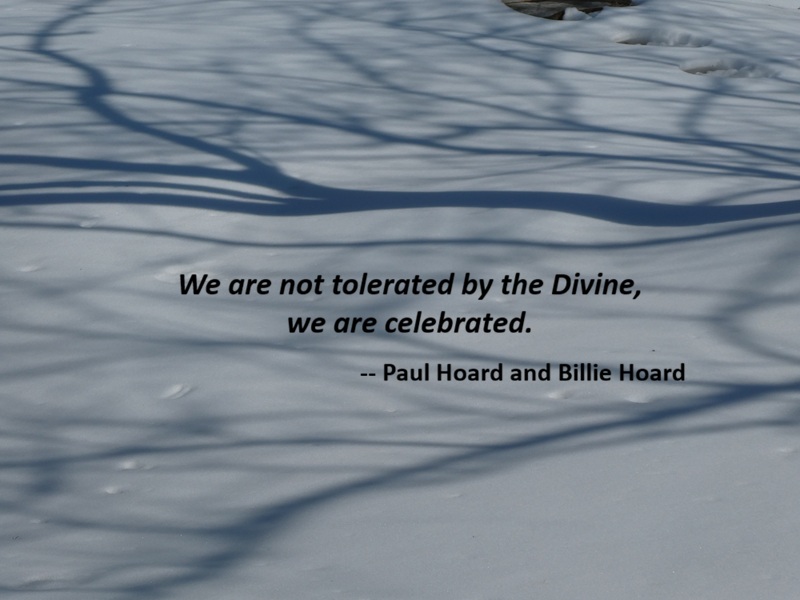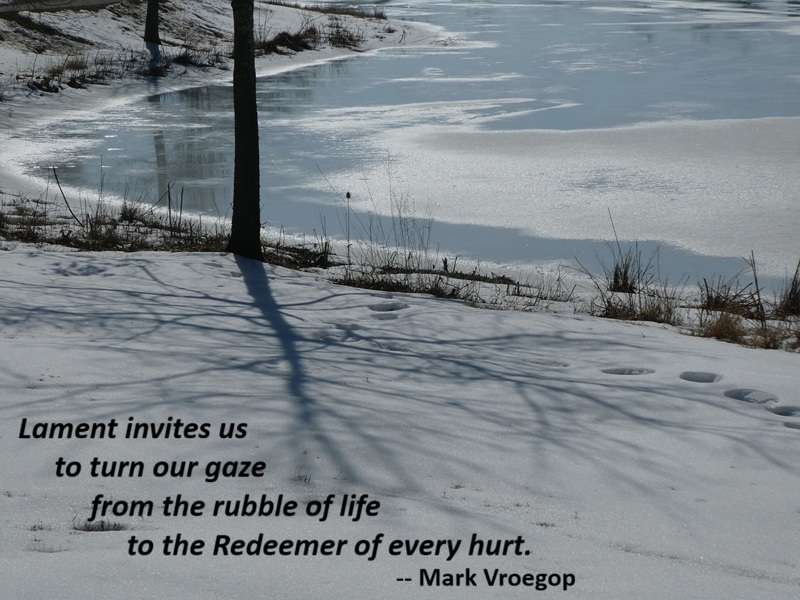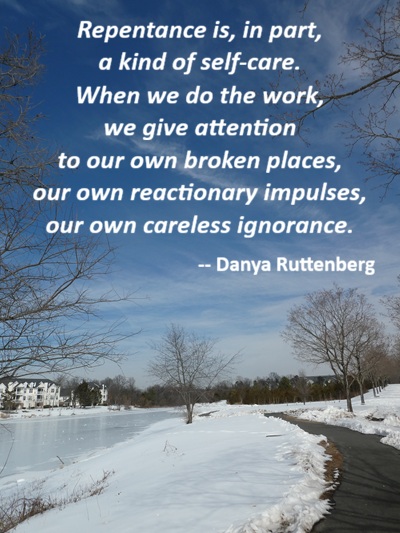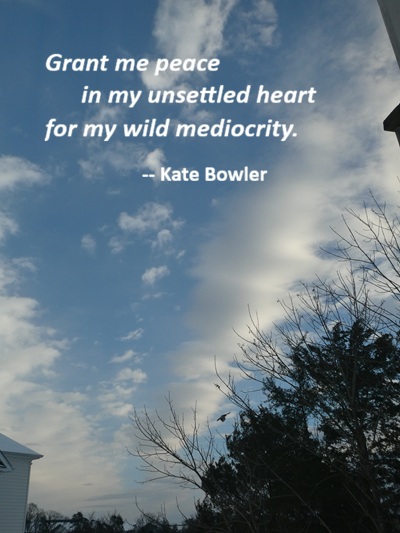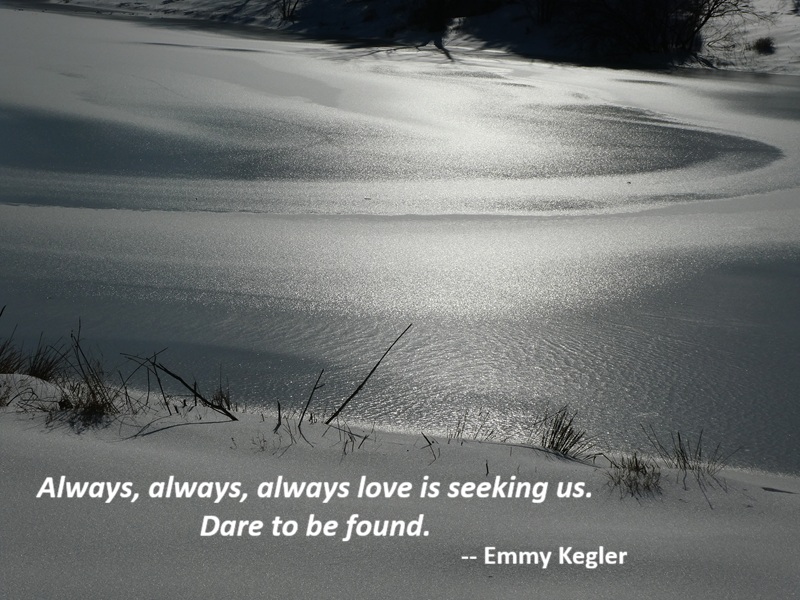God Didn’t Make Me to Hate Me.
So how do we melt away the fear?
I believe it begins here: by looking at the heavens, and looking at the dandelion in the cracks, and looking at scripture, and looking at God, and trying an older and wilder way of trust. It begins by saying: God did not make me to hate me; God made me to love me. God made me out of desire. God made me out of joy.
— Rev. Lizzie McManus-Dail, God Didn’t Make Us to Hate Us, p, xiii
Photo: Shadows of tree branches on frozen lake, South Riding, Virginia, January 30, 2026
